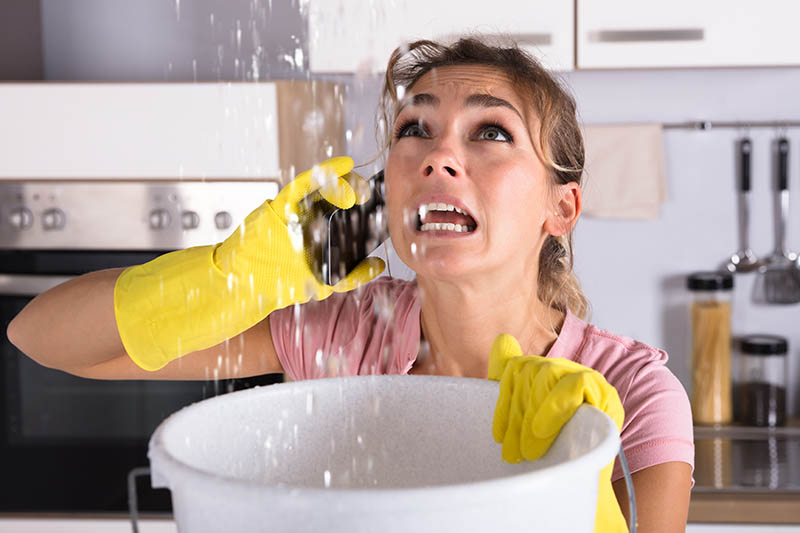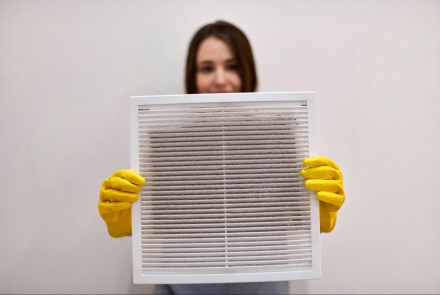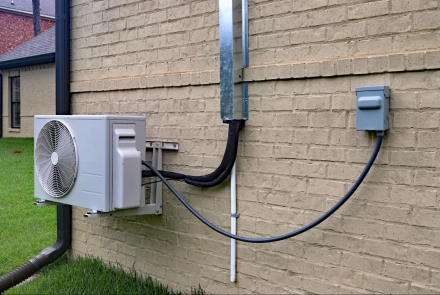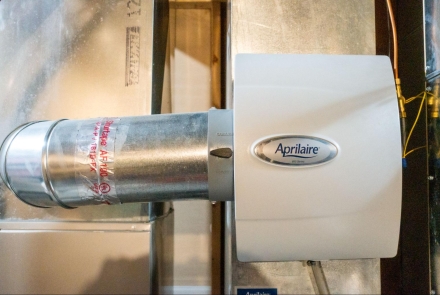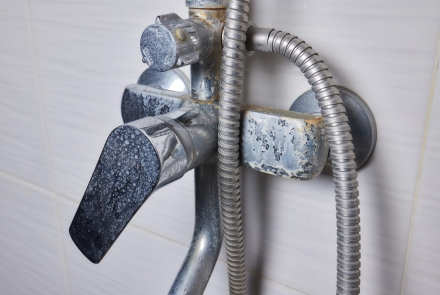How To Reduce The Effects of Water Damage
How To Reduce The Effects of Water Damage
Water Damage is something that should be dealt with swiftly. Unaddressed water damage can cause severe damage to your property, belongings, and even your health.
Finding a leak or puddles of water in your home or business is not a fun experience. However, knowing how to manage and reduce water damage can help protect your property. This will keep your home or business safe and in good condition.
Common Causes of Water Damage
Several factors, both inside and outside your home, can cause water damage if something gets backed up or leaks.
- Malfunctioning plumbing fixture or appliance
- Burst or cracked pipe
- Sewer backup
- Clogged drains
- Roof leaks
- Clogged gutters
- Malfunctioning HVAC units
- Natural disasters
7 Steps For Addressing Water Damage
Proper water abatement is important for minimizing the effects of water damage to your property. Here are the steps you need to take to mitigate water damage to your home or business:
1. Identify the Source
When you notice water damage, the first step is to find where the excess water is coming from. To stop the water, find the shut-off valve or the source of the water outside. This will help prevent further damage. The source of the water will also help you decide whether to call a plumber or water abatement service.
2. Remove the Standing Water
Standing water in your home can cause a host of problems, including mold and bacteria. It’s essential to remove it as soon as possible. You can do this yourself with wet-dry vacuums, buckets, or towels, but professional equipment might be necessary depending on the amount of water.
3. Dry Affected Areas
Once the water has been removed, it’s vital to dry the space properly. Lingering moisture or humidity can cause mold or wood rot to the structure of your home. These issues can cause extensive damage to the integrity of your property.
You’ll want to use several fans and dehumidifiers to dry the space quickly and effectively. If a big part of your property is affected, you will need industrial fans and drying tools to remove any moisture.
4. Assess the Water Damage
After all the water is gone and everything is dry, you can take stock of the water damage your home or business has. You’ll want to inspect your property and belongings to check for signs of mold or structural damage. Documenting the damage is crucial because you'll need it for any inspections or insurance claims.
5. Clean and Sanitize
Cleaning areas with standing water can reduce the risk of bacteria, helping prevent mold and other health issues. If the water damage is minimal, you can do this with regular household cleaners. For more damaged properties, you'll need expert water damage restoration to ensure your property is free of potential hazards.
6. Repair and Restore
Addressing any structural damage is vital to maintaining the integrity of your home or business. Water damage can lead issues with the foundation, walls, or floors of your property. Depending on your skill level, you can DIY certain repairs, like replacing drywall or repairing damaged flooring.
If not, you’ll need to find a contractor or water damage restoration company to handle the repair process. For insurance purposes, you might need to hire professionals to complete the work and adhere to your policy.
7.Contact Water Abatement Professionals
If you are in trouble or dealing with more water damage than expected, contact water abatement professionals immediately. If your water damage came from a broken appliance or heating and cooling system, you will need a plumber or HVAC expert.
If your pipe bursts in winter or you have a plumbing emergency, you need a plumber you can trust. A good plumber can fix the problem quickly. This helps prevent water from causing serious damage to your home or business.
Are you dealing with water damage from a flood or storm? Natural disasters can cause water to back up into your home or business. To fix the damage, you will need stormwater abatement, which includes installing systems like a sump pump or drains to prevent future issues.
How to Prevent Water Damage
There are several steps you can take to prevent water damage from occurring. Checking these areas of your home or business can give you peace of mind. You can relax knowing your plumbing and HVAC systems are in good shape.
- Insulate exposed pipes
- Seal any cracks or gaps along windows or plumbing fixtures
- Maintain a consistent indoor temperature to reduce humidity
- Inspect and clean gutters and drains
- Inspect and maintain the roof
- Schedule regular HVAC maintenance
Get Professional Water Abatement From Robert Bair
Water damage can be very stressful. Taking quick action can help lessen the damage. Our expertise ensures that every aspect of the damage is addressed. Handling water damage can be tricky, especially when dealing with larger issues like mold, sewage backups, or extensive flooding.
Don’t leave the safety and integrity of your home or business to chance. Contact Robert Bair for reliable, expert water abatement services you can trust across the Chicagoland area.

